New Scientist covers the latest developments in science and technology that will impact your world. New Scientist employs and commissions the best writers in their fields from all over the world. Our editorial team provide cutting-edge news, award-winning features and reports, written in concise and clear language that puts discoveries and advances in the context of everyday life today and in the future.
Elsewhere on New Scientist
Gold hydrogen fever • Earth may hold huge deposits of carbon-free fuel, but we can’t count on it yet
New Scientist
An upstanding Endeavour
New virus-like replicator discovered • Previously unknown replicating agents named “obelisks” have been found in genomic data from stool samples – but we know little about what these entities do, says Michael Marshall
What we know about the stars where NASA will hunt for life
Bees tend wounds, which suggests that they feel pain
AI mimics sleep to learn better • Making models rehash learned data in a sleep-like state boosts performance
SLIM moon lander regains power after botched landing
Patch with ‘octopus suckers’ helps drugs penetrate the skin
Plagues that shook the Roman Empire linked to cooler climate
Playing piano triggers changes in the brain
Engineered cells could slash cost of cultured meat
Smash-ups may explain light leaks • We may now know why strange light emissions from the early universe have been reaching us
Layer of graphene could help protect historical statues
Time to rethink thermodynamics? • Heating and cooling seem to be fundamentally different processes, not mirror images
Newly discovered smoking stars emit huge strange clouds
Smart sticker checks tumour growth and shows you in an app
Orangutan calls have complex structure like human language
Exquisite fossils reveal cannibalism • Three fossils of fish from the dinosaur era have members of the same species in their guts
Robot avatar lets people feel things remotely
Groundwater levels are dropping fast all over the globe
US states had 65,000 rape-related pregnancies after banning abortion
Retinal images could predict future risk of heart or lung disease
Toxic mud can be used to make greener steel
Black holes may be cosmic ray source
Putting pen to paper may boost memory
How the world looks through the eyes of other animals
Really brief
No need to detox • Describing ourselves as addicted to our phones is a counterproductive way to frame our overuse of technology, argues Pete Etchells
Health Check • Spotting the problem With measles outbreaks around the world, perhaps public health messaging should also focus on the virus’s ability to suppress the immune system, says Clare Wilson
Times past
Your letters
The power of chance • An extraordinarily rare event could upend our lives or alter the course of history. George Bass takes a journey into the chaos all around us
Keeping a clear head • A leading economist argues that we can increase our overall happinesss by thinking logically. Chris Stokel-Walker explores
New Scientist recommends
The film column • Don’t fence us in Occupied City, by 12 Years a Slave director Steve McQueen, is an epic work that explores how a city and its people react to civil control under Nazi occupation and, 80 years on, lockdown against a deadly disease, says Simon Ings
Gaseous gold • Huge excitement is gathering around a clean fuel known as “gold hydrogen”. James Dinneen tracks it down in Oman and asks if it can speed our path to net zero
Hints of hydrogen
The hydrogen rainbow
Where quantum weirdness hides • Our world emerges from clouds of...

 Jan 03 2026
Jan 03 2026
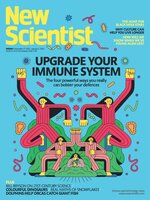 Dec 27 2025
Dec 27 2025
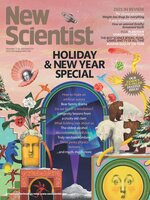 13-26 December 2025
13-26 December 2025
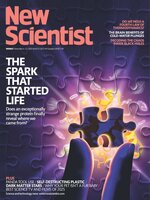 Dec 06 2025
Dec 06 2025
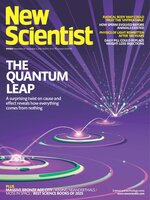 Nov 29 2025
Nov 29 2025
 Nov 22 2025
Nov 22 2025
 Nov 15 2025
Nov 15 2025
 Nov 08 2025
Nov 08 2025
 Nov 01 2025
Nov 01 2025
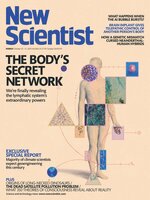 Oct 25 2025
Oct 25 2025
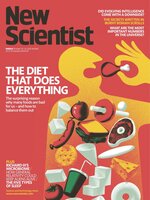 Oct 18 2025
Oct 18 2025
 Oct 11 2025
Oct 11 2025
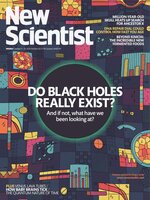 Oct 04 2025
Oct 04 2025
 Sep 27 2025
Sep 27 2025
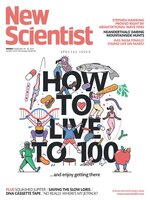 Sep 20 2025
Sep 20 2025
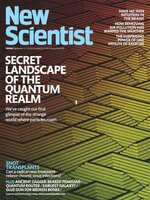 Sep 13 2025
Sep 13 2025
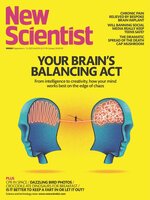 Sep 06 2025
Sep 06 2025
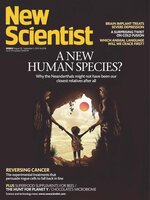 Aug 30 2025
Aug 30 2025
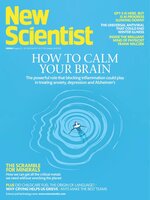 Aug 23 2025
Aug 23 2025
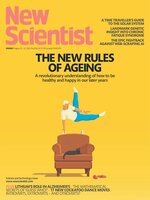 Aug 16 2025
Aug 16 2025
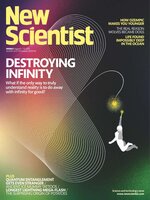 Aug 09 2025
Aug 09 2025
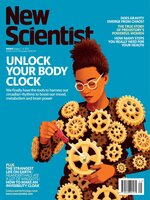 Aug 02 2025
Aug 02 2025
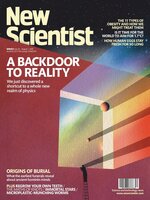 Jul 26 2025
Jul 26 2025
 Jul 19 2025
Jul 19 2025